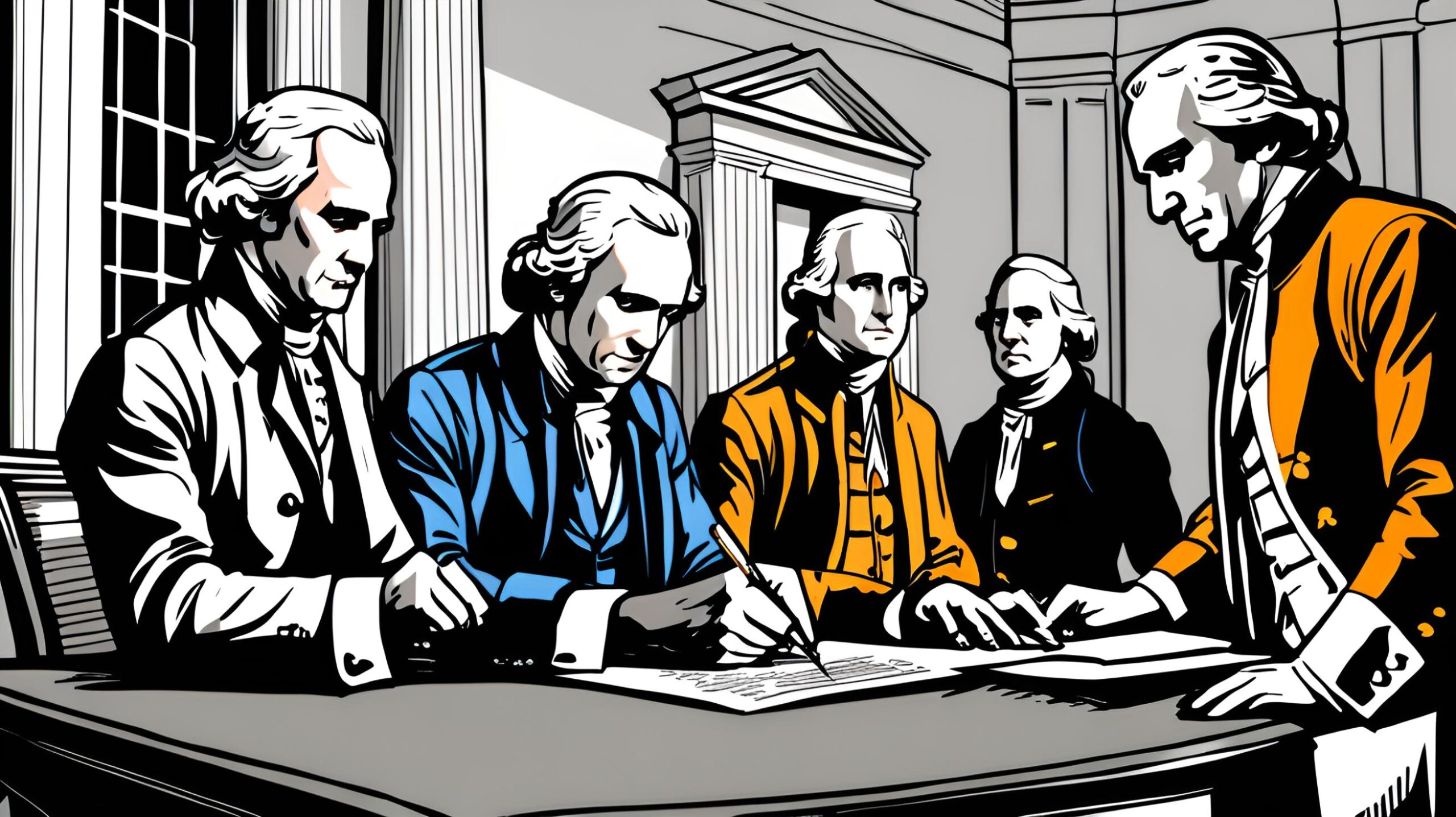Flashback to August 2
American History

Photo by Harris & Ewing – Source: Library of Congress
On July 28, 1932, a dark chapter in American history unfolded as President Herbert Hoover ordered the eviction of the bonus marchers from their encampments in Washington, D.C. The “bonus marchers,” also known as the Bonus Army or Bonus Expeditionary Force, were World War I veterans who had gathered in the nation’s capital to demand the early payment of bonuses promised to them for their service. The government’s response to their peaceful protest remains a haunting reminder of the challenges faced during the Great Depression.
It was an era of immense economic turmoil, with millions of Americans suffering in the depths of poverty. Unemployment rates were soaring, and families across the country were struggling to make ends meet. Against this backdrop, a group of veterans came together to demand their bonuses, which were due to be paid in 1945.
The bonus marchers, many of whom were unemployed and facing dire circumstances, saw these payments as a lifeline. They hoped the government would grant their request for early payment to help alleviate their financial hardship. The group initially convened at a campsite near the Anacostia River, where they organized and peacefully demonstrated for weeks.
Despite their peaceful intentions, tension grew between the bonus marchers and the government. Concerns arose about the potential for social unrest, and President Hoover decided to take action. On July 28, 1932, he ordered the U.S. Army to disperse the encampment. The operation was led by General Douglas MacArthur, accompanied by Major Dwight D. Eisenhower.
The scene that unfolded was one of chaos and violence. Tear gas was used to disperse the protesters, leading to clashes between the veterans and the police. The encampment was subsequently set ablaze by the military, turning into a scene of destruction and despair. It was a deeply distressing turn of events that shocked the nation.
The eviction of the bonus marchers had a profound impact on public perception. The use of force against the veterans tarnished the image of both President Hoover and the U.S. government. News spread rapidly, and images of the evicted veterans circulated widely. This event marked a turning point in public opinion and generated considerable sympathy for the plight of the bonus marchers.
Following the eviction, President Hoover faced intense criticism for his handling of the situation. The negative fallout from the event only added to his deeply unpopular image as a president who had failed to effectively address the nation’s economic troubles. The election later that year saw Franklin D. Roosevelt emerge as the victor, promising to bring about much-needed change.
The long-term impact of the bonus marchers’ eviction cannot be overstated. It highlighted the pervasive challenges faced by Americans during the Great Depression, while further revealing the government’s propensity to use force against those seeking help. The plight of the veterans galvanized public opinion and fueled support for measures aimed at providing relief to those most affected by the economic crisis.
the eviction of the bonus marchers from their encampment on July 28, 1932, serves as a dark reminder of the struggles faced during the Great Depression. The peaceful protests of World War I veterans were met with violence, leading to a significant shift in public perception and influencing the outcome of the subsequent presidential election. The legacy of this event serves as a testament to the power of peaceful protest and the importance of compassion during times of crisis.
We strive for accuracy. If you see something that doesn't look right, click here to contact us!
Sponsored Content

Delegates to the Continental…
On August 2, 1776,…

First parachute jump in…
Experience the thrill and…

PT-109, with future president…
On August 2, 1943,…

Morley Safer sends first…
On August 2, 1965,…

First trial run of…
Experience the rich history…

San Francisco Public Library…
On August 2, 1877,…

